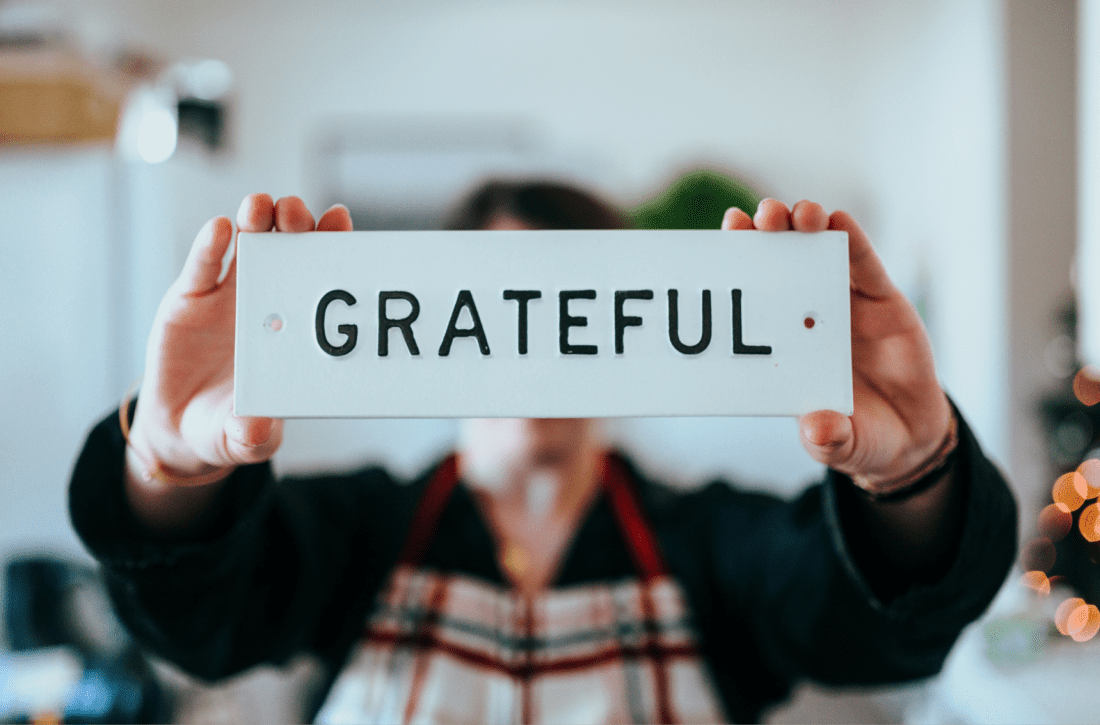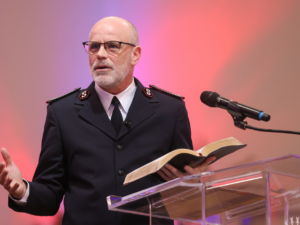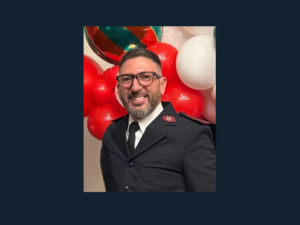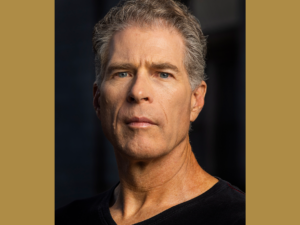By now, you’ve no doubt heard of the power of gratitude.
Scripture tells us it’s God’s will for us to be thankful in all circumstances.
And science has proven the benefits of a regular practice of gratitude for the mind and body.
So in this week of Thanksgiving, we’re pulling from our archives and adding to it.
In this episode of the Do Gooders Podcast, hear highlights from our favorite episodes on living with a grateful heart.
Hear from Dr. Rick Weissbourd, Harvard University’s Faculty Director for Making Caring Common, who shared in Episode 05: Five Strategies for Raising Kind Kids.
Hear from Dr. Robert Emmons, who’s considered the world’s leading scientific expert on gratitude, and who shared in Episode 27: What is gratitude and how can we foster it.
Hear from Commissioners Doug and Colleen Riley, leaders of The Salvation Army in the western U.S., about the gratitude we find in Scripture from episode 68 How to find gratitude.
Hear from Pete Greig, a writer and church planter who co-founded and leads the 24-7 Prayer movement around the world, and who shared in Episode 71 A simple guide for how to pray today.
And finally, hear from our own Caring Magazine Managing Editor Hillary Jackson on the blessings of now.
So, allow me to introduce to you today: Dr. Rick Wiessbourd, Dr. Robert Emmons, Commissioners Doug and Colleen Riley, Pete Greig and Hillary Jackson.
Listen and subscribe to the Do Gooders Podcast now. Below is a transcript of the episode, edited for readability. For more information on the people and ideas in the episode, see the links at the bottom of this post.
* * *
Dr. Rick Weissbourd: Well, the kind of things that we develop, a lot of them are around empathy. The big thing about empathy is … One issue is how much empathy you have, but almost everybody has empathy. Some people have a lot of empathy for people they’re close to, for their family and friends.
The bigger issue around empathy, in many ways, is who do you have empathy for? Do you have empathy for people who are different from you in race or gender or in class? Or do you have empathy for people who might be irritating to you, or you don’t share a lot with? So a lot of our initiatives or empathy work is around empathy and around gratitude. It’s around giving schools and parents simple strategies that they can do to build empathy.
We have a parent strategy which is called Just Like Me, which is around finding similarities in people that you initially think are different from you. Can you find the similarities? We have a school strategy where kids interview and do short biographies of other kids who have been invisible to them in the school building. Or they interview the custodian or the school secretary, an adult that has been invisible to them.
We have kids who do gratitude journals. We’re trying to reinstate in many families just the habit of thanking at bedtime or at the dinner table people, outside the family, inside the family, who have contributed to their lives in some way.
Also helping kids recognize all the work that has gone in to make their lives what they are, that someone … A lot of people did work to create a sidewalk. A lot of people did work to create a mailbox. A lot of people did work to create a kitchen counter. Helping kids appreciate those efforts.
Christin Thieme: Looking at all the research, what are the best ways that we can try to raise caring and kind, empathetic kids?
Dr. Rick Weissbourd: Well, I think one thing that we can do is we can prioritize it, and we can expect it. There’s a phrase that parents often use with their kids, which is, “The most important thing to me is that you’re happy.” What if parents said instead, “The most important thing to me is that you’re kind,” or, “The most important thing to me is that you’re kind and you’re happy”?
I think kids should, on a regular basis, pitch in around the house. They should do chores. They should help out neighbors. That should be part of a family identity. That’s what we do as a family.
Christin Thieme: If a listener were to want to try to do something to make more kind, more compassionate children around them, what’s one thing, the starting point, that you say, “Today, you should do this.”
Dr. Rick Weissbourd: As a parent, you should be focusing on your own kid, but the other thing is to really focus on other kids in your community. That’s what being a moral person is. If you’re a parent at a school, it’s not just about your own kid, it’s about every kid in that community. If you want your kid to be a good community member and citizen, that’s what you have to model for them, that we’re about every kid at this school.
We’re not going to lobby for a gifted program if it means taking money away from a program for remedial help for some kids. We’re going to consider both kids, both the gifted kids and the kids who need help. If there’s a kid who is homeless, or struggling in our school, or having a mental health issue, we’re not going to tell the teacher, “We want to kick that kid out of school.” We’re going to try and find a way to support that kid.
That’s what I think parents really need to do is send the message to their own kids that we do belong to these larger communities, we have responsibilities to those larger communities, and to model for them the many things that you can do to strengthen your community.
Christin Thieme: Right. Maybe even work on ourselves a little bit in blocking whatever might be impeding our own empathy.
Dr. Rick Weissbourd: Exactly. No, I think your point’s very important, that we’re all works in progress. I’m 61 years old. I’ve been studying this stuff for a long time. I still find myself … There are times where I’m not empathic, I’m not grateful when I should be, I forget to thank somebody, I forget to think about or to do things that can really make other kids in my community stronger, or make our community stronger.
I think this is lifelong work. We can develop along with our kids. It can be exciting to develop along with our kids too. It can be very powerful and moving when we develop and they develop, and we can get into a positive cycle with them.
***
Christin Thieme: And in all that study, what’s something that has jumped out at you that surprised you about gratitude?
Dr. Robert Emmons: Oh my gosh. I mean, so many … it seems like every day and in every way we’re learning more and more about how gratitude is surprising. I would say it’s some of the physical health consequences or the physical health benefits of gratitude. On the one hand, it’s not that surprising that when a person is experiencing gratitude or they’ve learned to look at life through a lens of gratefulness, that they’re happier. That they’re more content, they’re less anxious, they’re less stressed. They get along better with others. That’s not super surprising. Although it certainly was important to document that empirically.
What was surprising to me was all the physical health benefits. That gratitude is good medicine. That when you’re grateful, you sleep better. That when you’re grateful, your blood pressure is lower. You produce less stress hormones. I mean, the fact that grateful people live longer and live better and that there really is no downside to being grateful. That’s the upside to gratitude. So I’d say the medical health benefits have been the most surprising.
Christin Thieme: Interesting. And you alluded to this a little bit. We all know what gratitude is, but it’s hard to define. Is it an emotion, a virtue, a behavior? You mentioned all three of those. How do you define gratitude?
Dr. Robert Emmons: Yeah. Yeah. That’s a good question. We always have to start at that point, right? It seems to me that when it comes to gratitude, there’s a number of ways in which people think it’s one thing, but it’s actually something else. And this is a good illustration of that very fact. We think it’s just this feeling of being thankful. It’s this feeling of appreciation because someone has done something nice for us. And so we reduce it to that, just like a feeling of almost appreciation or in response to a benefit. And we leave it at that.
But it’s actually, it’s much deeper than that. In fact, there’s so many different layers and levels to it. I like to think of it in terms of two things. First of all, it’s affirming that there is good. Good in my life, good in the world, that there’s goodness that exists. And second, it’s a recognition that this goodness comes to me quite apart from anything I’ve done to earn or to deserve it.
So it’s this recognition that it’s coming from the outside, whether it’s from God or from other people or luck or fate or however you want to view this external force. And then affirming that there are good things in the world. So affirmation recognition. That’s how I like to think about gratitude.
Christin Thieme: And you talked a little bit about the physical benefits. What are the benefits of gratitude?
Dr. Robert Emmons: Yeah. So sometimes I give a very pithy description of my research, what we’ve learned over 20 years. I say it all comes down to two words. And those two words is that gratitude works. But I can unpack that a little bit. I can say that gratitude actually heals, energizes, and changes lives. And so we know that it heals current fears and anxiety and depression. So it rescues us from negativity. So we find that gratitude is a great protector, a buffer against stress. It’s an element, an aspect of resilience. Grateful people cope better with stress. They’re less depressed, for example. So you have that reduction of mental health, or mental distress, actually.
And then you find that gratitude actually impacts the good, enhances and amplifies goodness. So happiness, joy, contentment. You feel more alert, alive, awake when you are grateful. So it’s magnifying the good, it’s reducing the negative. And then third, gratitude is connecting us to other people. There’s this relational component to it, which is really, really strong. So I call this the ARC model of gratitude. My little book of gratitude, I say that gratitude works because it creates an ARC in our lives. And the A stands for amplifying the good, the R stands for rescuing us from the negative, and the C is for connecting us to other people.
***
Christin Thieme: He writes, “Rejoice always, pray without ceasing. Give thanks in all circumstances, for this is the will of God in Christ Jesus for you,” in 1 Thessalonians 5: 16-18. That’s almost a playbook for how to live. And yet, that give thanks in all circumstances sounds a lot easier said than done. Of course. So practically speaking, how do we acknowledge suffering without being overtaken by it?
Commissioner Doug Riley: Well, he lays it out. Rejoice always, no matter what you’re going through. That’s from the very depth of his soul. Because of his love for Jesus, he had a joy that was overflowing in his life. He prayed without ceasing. I think many times we get caught in the crisis of the moment. There are circumstances that face us in our lives or our family, and we instantly forget our source. And that’s drawing us back to Jesus and praying, praying without ceasing, even the little prayers. And then he gave thanks in all circumstances. That’s a challenge. No matter what’s facing us to give thanks to God, he is the creator, preserver, governor of all things. So if we think of all things that are good, we know they’re from him. But if we can give thanks and be thankful people, have that attitude, it changes our circumstances. We don’t allow our circumstances to control us. Because we know there’s a greater source.
Christin Thieme: And his example is really one of choosing that gratitude, which I think is an important note too, that he’d had to decide to choose that, even though things weren’t always rosy.
Commissioner Colleen Riley: And I think what’s been happening this year, we can choose to be in despair about all that’s happening. Or we can choose to find the good and find the gratitude in what the Lord has given to us. It changes you as a person when you choose the gratitude instead of the other side. It just changes you as a person.
Christin Thieme: Yeah, and it doesn’t make the fight any less real, as we’re all well aware of. But we know that we have that victory, you could say, in the end.
Commissioner Colleen Riley: And I think it changes the focus of that fight. Right. Instead, we’re going to make it through. We’re going to find a way with the Lord. We’re going to find a way through. We’re going to choose the gratitude instead of wallowing. We all have days like that, right? We’re all human. We’re going to have days where it’s really rough. But when we choose the gratitude, eventually you go forward, and you find the good in it.
Commissioner Doug Riley: It’s kind of, where’s your focus. That’s what you choose. If your focus is on the worldly things and the things around you, that’s what you’re going to be impacted by. But his focus was so laser-focused, as you said, it was on the joy of the Lord. And that’s where he found his strength. That’s where he found his power to… In the circumstance, being whipped and tortured and everything that he found himself in, he gave these words of encouragement. And the word encouragement in the Greek, means to come alongside somebody and give them courage. If you visually take that word out, it would be like standing next to somebody and locking arms. And that strength that is found when two people stand next to each other and lock arms means we’re in this together. And I’m giving you encouragement and courage to go on, to press whatever you’re facing, to press on.
***
Pete Greig: So I use the Lord’s Prayer as a structure for how to pray. And then announced to the final bit of your question. Do you have to pray that way? No. Just be yourself with God, learn to pray the way God made you. But I think once you start wanting to go a bit deeper on your relationship with God, you will find the Lord’s Prayer is the single most helpful framework for moving from just chatting to God about whatever you feel like, to actually allowing prayer to pray you.
Christin Thieme: And you have made that into a really nice, easily memorable framework in pause, rejoice, ask and yield. So it’s easy to come back to, which is nice. Thank you for that. But when we look at pause specifically, and we were talking about savoring simplicity this season, so I’m wondering if we can hone in here for just a minute. It sounds simple, but it’s really easy to really pause that invariably, our mind rejects any kind of stillness you say in the book, a tyranny of demands and distractions strikes up in the unfamiliar silence, like a brass band parading around my school. I love that because it’s so relatable that it’s so hard to really be still and to pause. But you also say that you cannot emphasis the importance of silencing the world’s relentless chatter for a few minutes each day to become still in the depths of your soul. So how can we go about centering our scattered senses as you call it?
Pete Greig: Yeah, I mean, it is probably the most challenging and the most important bit of the book. It is learning how to stop, right? Before you start praying, learn how to stop. Before you pick up your prayer list, your shopping list, your Amazon wish list, put it down. Just lay down and be still. And so I teach some very simple skills, tools that will help you to do that. And I’ve had people all around the world say it has really helped them. And some of them are to do with using a simple phrase that you repeat, maybe a scripture or something. The Franciscans used to say, “My God and my oh, my God am my oh.” And the aim of repeating a phrase in prayer isn’t to really focus on those words, it’s to kind of shut out the other distractions.
I talk about the importance of movement. Sometimes being still is about stopping, but sometimes actually, especially if you working ethically, you will find it easier to pause by maybe going for a run or something like that. And that’s something many of the great prayer books don’t talk about yet. If Jesus climb mountains all the time to pray. And I don’t think it was just because he liked the view. I think he was actually affecting the chemicals in his own bloodstream to help him in his encounter with God. I talk about breathing slow and deep, and people get really upset about that one christian people have been accusing me saying it’s like a new age, breathing technique. I’m like, I was preparing myself to respond to all these people who are trying to get my book banned and all this stuff.
And I could have argued it pretty well. There’s a whole Bible study I could have done for them on it. And I just thought anyone who needs a Bible verse for breathing well is just, they’re in deep trouble already. So I go easy on them. So it’s good for you to take some deep breaths. Repeat some prayers, get comfortable, whether it’s sitting still or moving around. And focus on God. Because if we just rush in with our list of demands, it’s really all about us.
And the thing is like, say, so I need God to heal me of cancer, right? Clearly that is a big, big prayer request. And it’s very tempting that every time I’m before God I’m like, God heal me, but there isn’t any real hope in the cancer. So focusing on my problem, it doesn’t give me faith. Focusing on the fact that God loves me, and he’s big, and powerful and present and on my side, it contextualizes my struggles and my questions, and it enhances my faith and enables me to make my petitions in a way that is appropriate to the fact that he is God and I am not.
Christin Thieme: Yeah. You say the best advice you ever received about how to pray is to keep it simple, keep it real and keep it up. Is that your elevator pitch for prayer?
Pete Greig: Yeah, that’s exactly it. And it really is simple. And that’s not me, that’s Jesus. That’s not like a catchy Insta meme, that’s Jesus. He would have been great on Instagram. But keep it simple, just don’t pretend, come to God as a child. That’s what Jesus said. In fact he said, “There’s no other way of getting to me.” Keep it simple. Keep it real. He told that beautiful parable about the Pharisee and the tax collector. Up at the temple right. And the tax guy were like, thank you, you’re not like other than, you know that. And then the Pharisees they’re like doing that I’m pretty crying. Not like Hollywood crying, like, well it’s not coming down your face or your eyes are puffy. He’s rocking backwards and forwards going have mercy on me, a sinner.
And then Jesus is telling this story, he looks around the crowd and he winks at Pharisees. He says this, he goes, “Hey, just out of interest, who do you think went home, heard by God.” And he just leaves it hanging. Isn’t that cool? He’s like, “Be real with God, lament, ask questions.” God’s not insecure around atheists. He can handle your doubts and your anger be real with God, and then keep it up. Like sometimes praying. Again Jesus told stories explicitly to say, don’t give up praying one prayer to sin. Sometimes it’s like prayer is chucking a rock into a swamp, right?
And it looks stupid, and it feels pointless. The rock just disappears. But if you keep chucking rocks, eventually one will appear above the surface and then another, and you’ll be able to walk across. So don’t give up praying on prayer too soon because God’s just not an algorithm locked away in Silicon valley, right? And this is a relationship. And God only has two speeds. One is slowly and the other is suddenly. And even when he does things suddenly, he takes his time.
Christin Thieme: Yeah. I made big stars all around that section of that analogy on throwing the rocks into the swamps. I love that visual. Sometimes we feel like we’re praying, but is he hearing, am I hearing him? Not really sure. And I love that analogy. You just keep throwing the rocks and eventually solid ground will begin to appear. It’s beautiful.
Pete Greig: Right.
***
Hillary Jackson: If you’ve ever sang the hymn “Come, Thou Fount of Every Blessing,” you may have stumbled over the word “ebenezer” that’s traditionally written in the song’s second verse. At least I have. After a few attempts at using context clues, my word nerd instinct kicked in, and I looked it up.
No, ebenezer isn’t referring to characteristics like those of the scrooge from Dickens’s “Christmas Carol.” Ebenezer is derived from Hebrew and means “stone of help.”
When God listened to Samuel and gave the Israelites victory after they were under attack by the Philistines, Samuel literally placed a rock at the scene and called it Ebenezer, saying, “Thus far the Lord has helped us.”
How have you been blessed?
As a culture, we designate one day a year to give thanks for the blessings in our lives, but research has found there are a number of benefits to embracing a lifestyle of gratitude.
Gratitude has been found to improve physical and mental health, help you sleep at night, improve self-esteem, make you happier and increase mental strength.
Maybe maintaining a rock collection representing your blessings isn’t for you, but there are other ways to create ebenezers to remember past things you have to be thankful for.
In Ann Voskamp’s “One Thousand Gifts,” Voskamp invites readers on her journey as she transforms her life through literally counting her blessings—1,000 gifts. Instead of only focusing on the big things, Voskamp records life’s fleeting moments that bring her joy, too, like:
Morning shadows across old floors
Jam piled high on toast
Cry of a blue jay high in the spruce
When she puts it that way, it’s easy for me to see there are probably loads of gifts I haven’t noticed simply because I’ve hurried from one place to the next.
There is beauty in my everyday routine I like to rush through.
Embracing gratitude can look like embracing life as it comes.
In “One Thousand Gifts,” Voskamp writes, “I know. I didn’t think I was fixing anything in the beginning either…But this literal counting of everyday gifts—all the way up to one thousand—more—what if it’s this wildly simple way to move our focus beyond burdens of life to the blessings of now?”
So, try it this Thanksgiving week: Ponder and write down three to five things you are grateful for, from the mundane to the magnificent.
What are your blessings of now?
Additional resources:
- Listen to Episode 05: Five Strategies for Raising Kind Kids with Harvard’s Dr. Rick Weissbourd
- Listen to Episode 27: What is gratitude and how can we foster it with Dr. Robert Emmons
- Listen to Episode 68: How to find gratitude, especially in a year like 2020 with Commissioners Doug and Colleen Riley
- Listen to Episode 71: A simple guide for how to pray today with Pete Greig
- Get inside the Caring Magazine Scripture Study Collection and find a suite of free, downloadable Bible studies to guide you through topics from New Beginnings Through Forgiveness, to Understanding our Imago Dei or Life Hacks From David.












